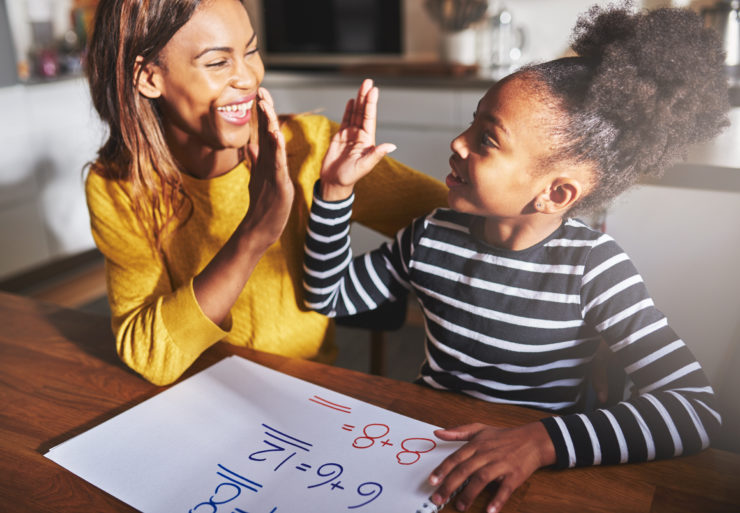Kids with accountability will be better prepped for adulthood.
You dedicate those first eighteen years of parenting to prepping your child for adulthood. You hope to equip them with all they need to enter the next chapter with confidence.
Psychologist Dr. Tom Golightly believes that the best thing you can provide your kid with before the next phase is a sense of accountability. He shares five ways parents can do that.
5 Ways to Equip Kids With Accountability
As a parent, it can feel like we are in a never-ending quest to help our children be as ready as possible for the rigors of adulthood. We want our kids to thrive – pick up the ball and run for themselves – when they reach the doorstep of developmental growth. It can be a difficult task to self-assess and stay the course to promote individual responsibility with our kids. The following are some helps that we can implement along the path, and make this process a bit less stressful on everyone:
Look inward first – we sometimes want to react and look outward at our child or a system. It might be helpful to take a quick glance at ourselves. It’s a tough question, but ask how you might be contributing to the problem and then hold yourself accountable to the answers you find. Children (especially teenagers) will do what we do, more than what we tell them to do. If you find something, then own it with your child, commit to change, and be open about your responsibility in following through. Let them see this process, it will humanize it and let them know that growth is a life-long deal.
Calm > Tense – well, duh! Seems like a bit of a no brainer. However, often we are trying to teach accountability when we are in the throes of a tough discussion about misbehavior, rule-breaking, etc. The time of high intensity is not the best time to teach responsibility. That’s not to say we shouldn’t impose consequences, there is a time and place for that, but the impassioned moments might not be the best time re-establish boundaries. Our children will remember the upset more than they remember what you are wanting them to learn. Return to the conversation later. Be factual and rational. It is more likely that the boundaries will be remembered, better understood, and less likely to be tied to negative emotion.
What CAN they do – Too often in our parenting we focus on restriction. If we attempt to shift attention to center on things that our children can do, as opposed to things that they can’t, we are more likely to get the response we are looking for, AND it teaches them a really healthy principle of coping/resilience. Think of the times we are felling stuck in our lives – like we can’t do anything about our situations. When we start flipping the question to, “what can I do?” we often find ourselves unstuck pretty quickly. All kids feel a little under the thumb of their parentals, encourage them the look for things they can do. Engage in a bit of give and take with them if there is room for that on certain issues. It will foster personal development and may help them internalize the goal give them ownership of keeping the boundary.
Let natural consequences do the work – often, there are consequences that naturally stem from non-compliance, (e.g., if I’m consistently late for work, then my boss might not be very happy with me and have cause to fire me). Developmentally, children, even into early adulthood, are still growing the part of the brain that links choices and future consequences. The best way to foster this growth is to allow the consequences to play out. Two parts to this: 1. Not saving them from these consequences, and 2. Not imposing extra punishments when we see the natural consequences doing the work. Doing these two things helps us avoid power struggles that come with lectures and punishments, and invites our child to do what we talked about earlier and ask themselves the hard question of, “how did I contribute to this problem?”
Stick with it!! – Consistency and predictability are paramount in teaching accountability. It is definitely and effort-ful task, and there are times when we want to give into the ease of letting some things slide. Understandable. However, it is important to continue to stay with it, not just when we observe behaviors we want to stop, but checking in with your child regularly about how change or compliance is going. With the young adult struggling at school, ask non-intrusively and just check in with them.















Add comment